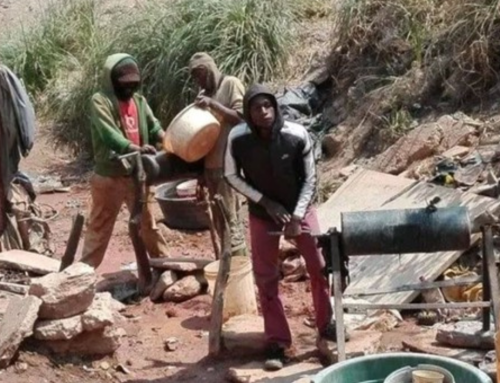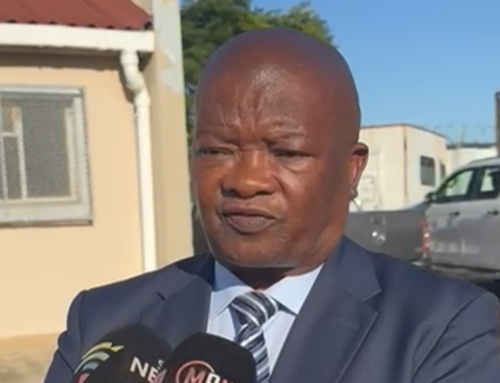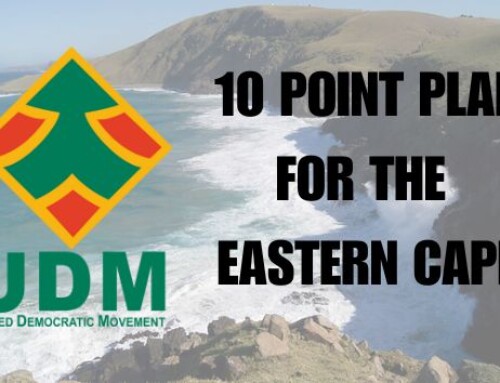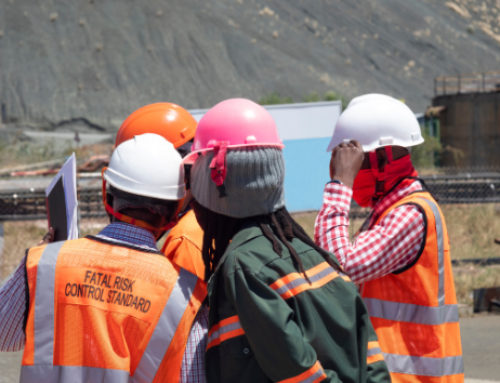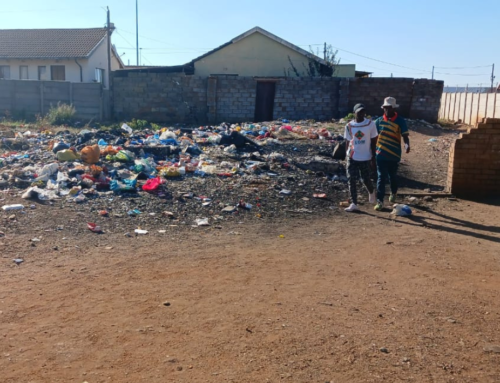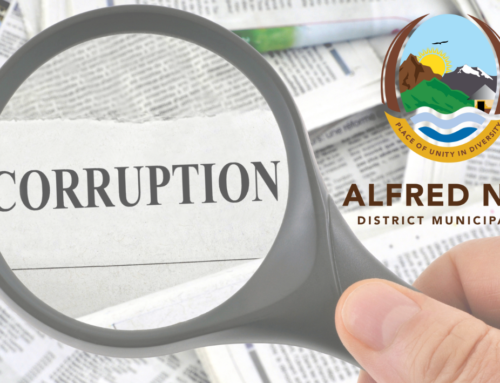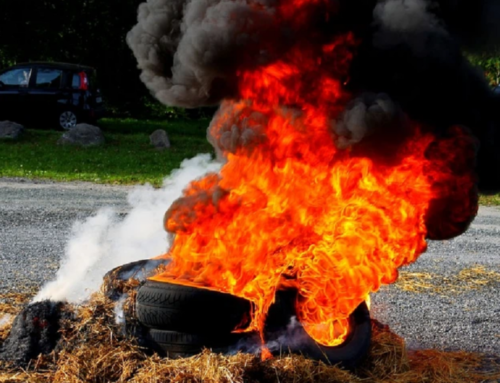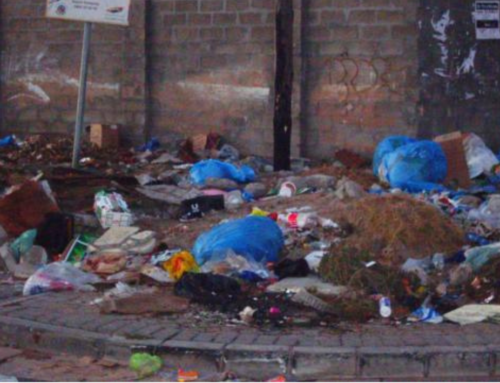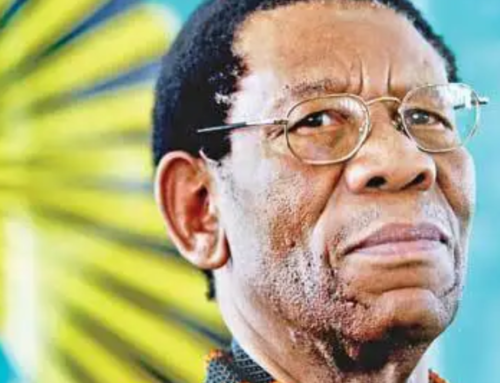• National Leadership of the UDM
• Provincial and regional leaders of the party
• UDM members and supporters
• Fellow South Africans
1. Introduction
Greetings to you all and thank you for welcoming the United Democratic Movement (UDM) into your midst with such open arms.
We have been here many times after that fateful day on 16 August 2012. We still mourn the loss of life and pray that those who paid with their lives rest in peace.
This incident has left an indelible mark on the psyche of this community, especially on the families who were left behind.
Since then, promises had been made to help the victims and also to improve the living conditions of the community at large.
Nothing has happened, especially here in Marikana where the dust and tin shacks sketch a bleak image of the human suffering in this area.
2. Consequences for the Marikana Massacre
To this day, there has been no consequences for those who broke the law when the Marikana Massacre happened.
This file will never be closed until this happens and a new government must look into this as soon as possible.
However, now that we have a new boss at the National Prosecuting Authority (NPA), Advocate Shamila Batohi can let this community know how far the NPA is in making its decision to prosecute or not, and if not, why.
3. A failing government system
The UDM has been moving around, doing our work, and we have heard your complaints around having access to the most basic of services. Water, electricity, decent housing, medical health care, and so the list goes on.
This shows a failing government system that does not have its priorities straight.
It shows a government that is run by a party that appears to have their knives out for this community.
4. Strife in the tri-partite alliance
There is much irony in the strife that we witness within the tri-partite alliance.
We all know that the Congress of South African Trade Unions (Cosatu) vigorously differs from the economic policies that their partners ratify at African National Congress conferences.
It is a mindboggling situation. It simply makes no sense for these people to still be married to each other. Unless, those in cushy positions of power prefers the status quo to remain at the expense of the working class and the unemployed.
Investors see that this cart is being pulled by horses going in different directions and they hold their investments at bay.
5. The UDM’s outlook on the role of unions
The UDM understands the role unions must play in mining communities such as yours.
A UDM government will work with all unions.
We are adamant that services and wealth should not be withheld, just because a union chooses to side with hardworking men and women, and not with a particular political party.
6. Restructuring Nedlac
There is a generalised political challenge within the ruling party and the tripartite alliance.
This shows most clearly in the work supposedly being done in the National Economic Development and Labour Council (Nedlac).
This structure has four very weak legs upon which it stands:
1. Nedlac’s limited composition i.e. only government, business and some labour formations,
2. The very labour formations who participate in this forum are in bed with the ANC,
3. Business will forever remain cagey and suspicious of their colleagues in the unions, because of this lack of arm’s length and
4. It not only discriminates against and disenfranchises other unions, it also does not have the benefit of other voices such as the unemployed (who most desperately need our economy to work) and other political parties (who represent other interest groups).
A UDM government will make it a point to make the necessary changes to address Nedlac’s weaknesses.
7. The ongoing strike at Sibanye-Stillwater and allegations of corruption
The Association of Mineworkers and Construction Union (AMCU) members has for some time been on strike and it is way overdue for government to come to the party to help resolve the impasse.
The UDM calls on government leaders to drop their pettiness and partiality, and get all stakeholders to sit down around a table to find solutions so that the strike will no longer be necessary.
Another point I wish to raise is that many retired mineworkers are left out in the cold, literally and figuratively, because retirement contributions and Unemployment Insurance Fund payments, that were deducted from their salaries, have vanished into thin air.
The UDM advises Amcu and other unions to appeal to, either the Mpati or the Zondo Commissions, to extend their inquiries into where mineworkers’ monies have gone.
These commissions of inquiry have the necessary tools to summon anyone, or any company, to come and account for their alleged misdeeds.
8. Foreign direct investment
As you are well aware, both President Ramaphosa and Mineral Resources Minister Mantashe comes from a mining background.
Instead of doing something about the circumstances of mineworkers, they have succumbed to the influence of their BEE partners.
When they go out to seek direct investment, and they manage to rustle up a few foreign investors, the ANC foists BEE companies on them.
And, instead of some of those companies bringing in more money into South Africa, they seek loans from the Industrial Development Corporation (IDC) and the Public Investment Corporation.
We have, for example, seen this happen when the Guptas approached the IDC for a R250-million loan to buy their nonprofitable Shiva Uranium mine
This is pure nonsense!
9. The SA tax system
South Africa has a tax system that is skewed in favour of the rich and the corporate sector. For example, in South Africa today, private individuals carry the heaviest tax burden.
According to the 2019/20 Budget, personal income tax will contribute R552.9 billion to the fiscus in 2019/20, value added tax will contribute R360.5 billion, while Corporate Income Tax will contribute a paltry R229.6 billion for the same period.
A UDM government will change this tax system that favours the rich and the corporate sectors at the expense of the poor.
We will increase the Corporate Income Tax rate from the current 28% to 31%, which will give us the resources we require for the service delivery needs of our people.
Some will argue that increasing the corporate income tax rate will chase investors away.
I put it to you that keeping it at 28% has not served as an incentive for foreign direct investment either. Instead, it has resulted in the corporate sector using sophisticated tax avoidance schemes to reduce their tax contribution to the fiscus even more.
A UDM government will tighten laws on tax avoidance.
To make matters worse, when one takes into account the fact that VAT contributes more to the fiscus than Corporate Income Tax, it is clear that the ANC government balances its budget on the backs of the poor.
A UDM government will reduce VAT back to 14% and consider reducing it further in future to protect the poor.
10. What are you to do to change the status quo?
Maybe this community is being punished because of their independence from the establishment.
Maybe it’s mere vindictiveness of the local tri-partite mafia that’s relegating you to the lowest of the low.
You must be strong and refuse to be terrorised into subjugation and realise that your power lies in your ability to vote this mafia out of office on the 8th of May.
Thank you



